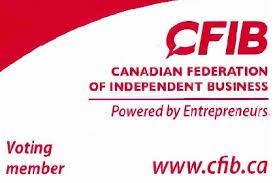Prince George is at the top of the class when it comes to the way the city treats small businesses on the property tax front, according to a Canadian Federation of Independent Business report.
In 2018, small business accounted for 30 per cent of the revenue the city generate from property tax, while making up 18.4 per cent of the city's total assessed value for property. That works out to a ratio of 1.63, the lowest among 20 municipalities analyzed for the report.
The average ratio was 2.39 and the worst was Saanich at 3.46. Just three other municipalities had a ratio less than 2.0 - Kamloops, Chilliwack and Kelowna.
Prince George also scored the best on the so-called "tax gap." A small business paid $17.50 per $1,000 assessed value, 2.3 times the rate charged for residential property, the lowest ratio among the municipalities the CFIB considered. At 4.38, Coquitlam was rated the worst.
Mayor Lyn Hall was "very pleased" with the outcome and echoed a sentiment expressed in the report about the importance of small business.
"It really is one of the key drivers in the economy and so for us to be ranked number one with that tax ratio being so low, it was very, very good to see," Hall said.
The low ratio may also be helping draw businesses to the city. As of Oct. 1, the number of business licences issued so far this year stood at 1,991, a 49.6-per-cent jump from the number recorded at the same point last year.
Prince George Chamber of Commerce CEO Todd Corrigall had praise for city council but criticism for the provincial government.
"We've got a good tax regime for business from a municipal level right now but we're getting hit on the provincial level," he said.
Particular reference was made to the province's Employers Health Tax.
Introduced to replace the Medical Services Premium, Corrigall said it could deliver an impact upwards of $300,000 during the so-called "double dipping years" to business who have also been covering their employees MSP.
During that time they will be paying both the EHT and the MSP until the latter is completely eliminated at the end of 2019. The MSP was cut in half this year.
Corrigall also said it will also mean a $1.4-million hit to the city which will also likely be covered through an increase in the property tax levy with a commensurate increase to the bills businesses will pay to the city.
He said the provincial government will effectively be running surpluses on the backs of businesses during those years.
Adding to Corrigall's frustration was the fact that the government went ahead with the EHT without waiting for a report from a committee appointed to review the MSP and ways it could be changed.
"Why engage committees to do this work if you're not going to wait for final reports to come back?" he said.
The governing NDP has said getting rid of the MSP will save individuals up to $900 a year and families up to $1,800 a year. As for the effect on property tax levy, it says the hike for the average Prince George household would work out to $1.17 per month in 2020 if the city chose to cover the cost entirely through the levy.



